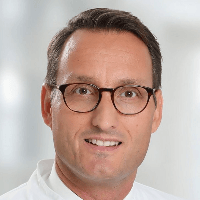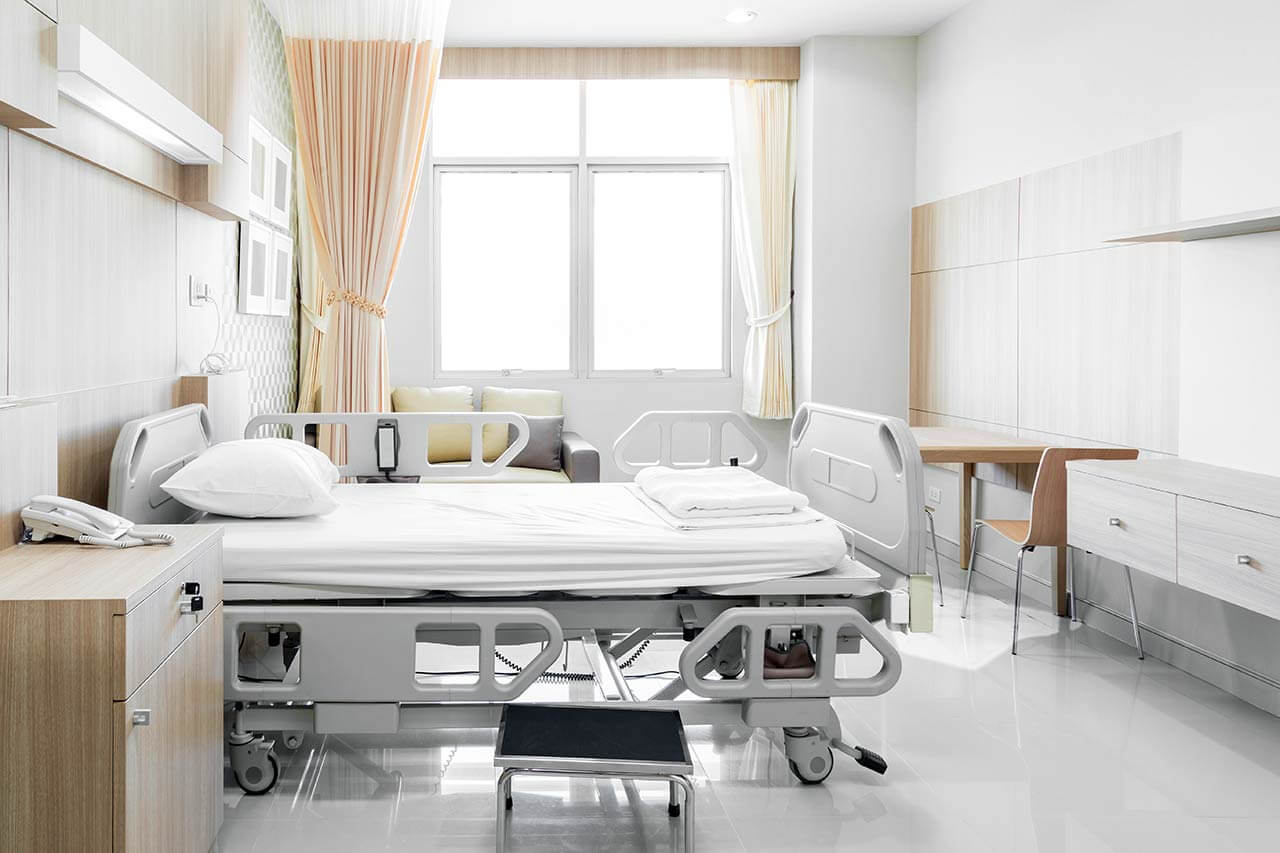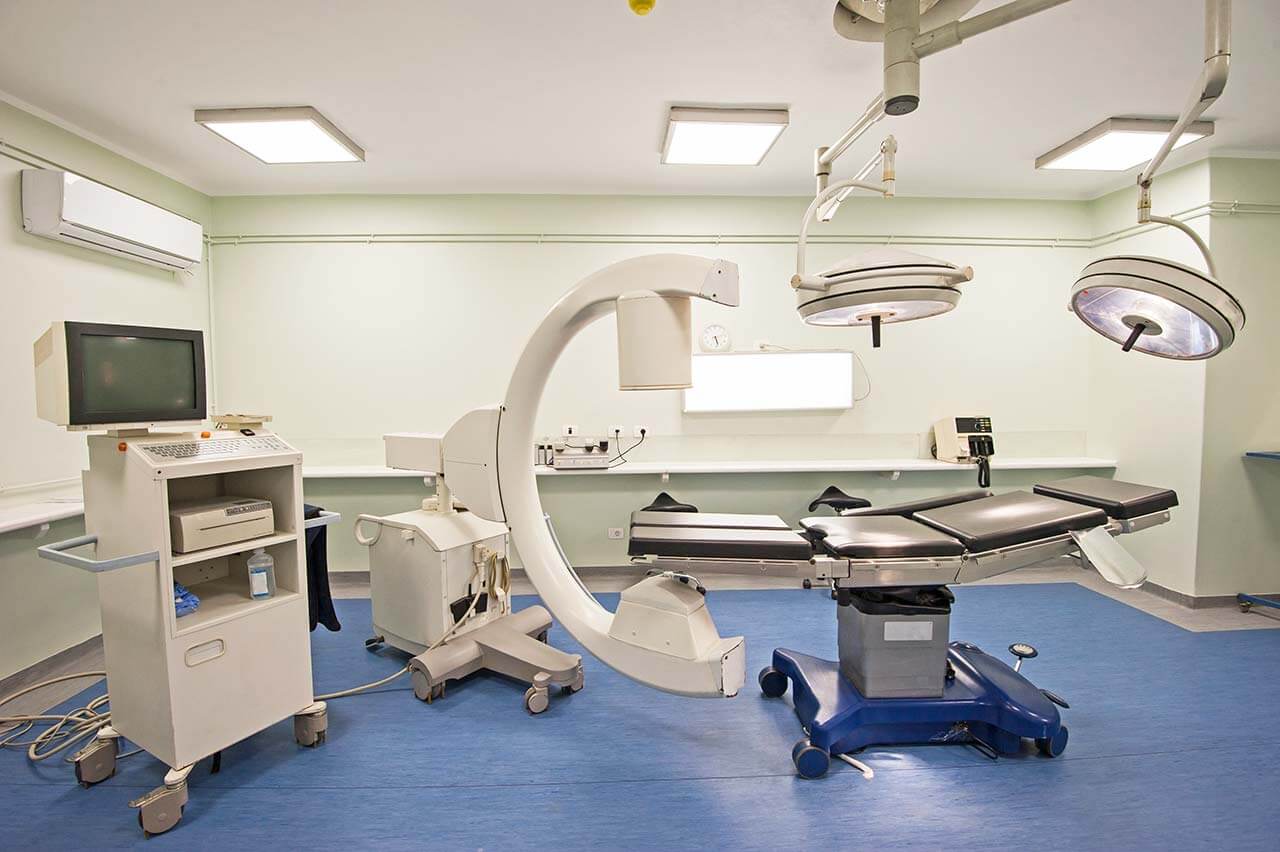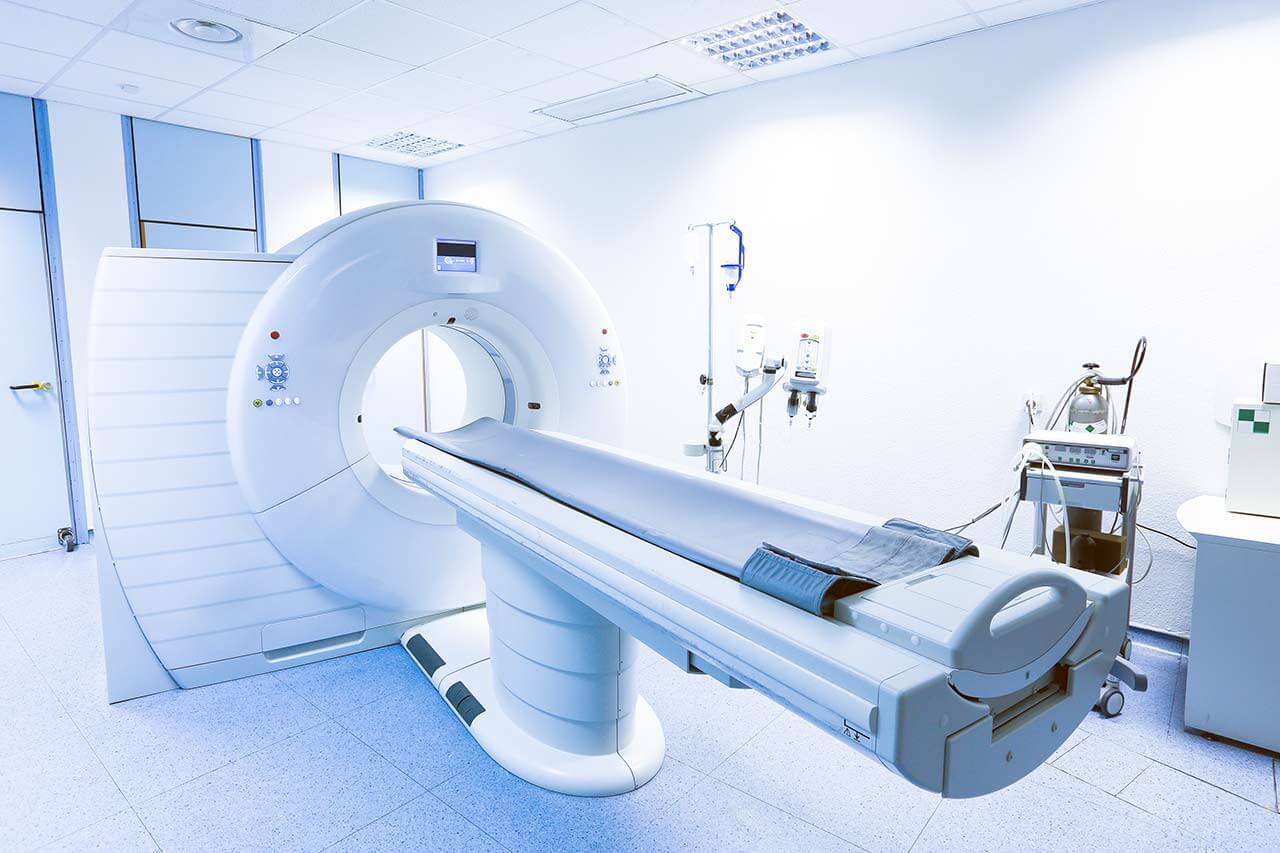
The program includes:
- Initial presentation in the clinic
- clinical history taking
- review of medical records
- physical examination
- x-ray of the hand
- nursing services
- consultation of related specialists
- consultation of the chief physician and all leading experts
- development of individual treatment plan
- written statement
Required documents
- Medical records
- Photo of the hand
- X-ray of the hand (if available)
Service
You may also book:
 BookingHealth Price from:
BookingHealth Price from:
About the department
The Department of Pediatric Surgery at the Helios Hospital Berlin-Buch offers the full range of surgical treatment for congenital and acquired diseases, as well as injuries in young patients. If possible, the operations are performed using sparing minimally invasive techniques, which significantly reduce hospital stay. Some operations may be performed on an outpatient basis. The doctors also have in their arsenal the very latest laser and cryotechnologies, which can be used, for example, for scar revision and lymphangioma treatment. The department is distinguished by exceptional experience and outstanding results in the correction of pectus excavatum in children. The department is headed by PD Dr. med. Stefan Gfrörer.
The department's surgeons specialize in highly effective surgical treatment of cancer in children – from newborns to teenagers. Since oncopathology is a complex therapeutic task, the treatment can take a lot of time. To make the child feel as comfortable and safe as possible, he and his parents can be accomodated in the same room (Rooming-in). The department mostly admits patients with such tumors as nephroblastoma, neuroblastoma, hepatoblastoma, mediastinal tumors and metastasis in the abdominal and thoracic organs. With appropriate indications, the department's doctors prefer minimally invasive surgery.
One of the priority focuses of the department's clinical activities is pediatric traumatology. The tasks of doctors in this field include not only the treatment of bone fractures, but also the surgical removal of cysts and other pathological bone lesions. The treatment of fractures is performed using Prévot technique and intramedullary osteosynthesis.
The department's range of surgical services includes:
- Neonatal surgery
- Esophageal surgery (for example, in atresia, fistula, stenosis, stricture, duplication)
- Surgery for liver and pancreatic malformations
- Correction of omphalocele and gastroschisis
- Removal of lymphangiomas and hemangiomas
- Bowel surgery for duodenal obstruction or stenosis (duodenal atresia or stenosis)
- Bowel surgery for occlusion or atresia of the small or large intestine, duplication of intestinal segments
- Correction of short bowel syndrome
- Surgical treatment of anal atresia, cloacal exstrophy
- Surgical oncology
- Removal of nephroblastoma
- Removal of neuroblastoma
- Removal of hepatoblastoma
- Removal of mediastinal tumors
- Removal of metastasis in the thorax or abdominal cavity
- Diagnostic procedures
- Thoracoscopic lung resection
- Laparoscopic tumor biopsy
- Laparoscopy for the second opinion
- Pediatric traumatology
- Treatment of bone fractures (Prévot technique, intramedullary osteosynthesis)
- Interventions in case of cysts and other bone diseases (for example, non-ossifying fibromas, osteoid osteomas, chronic osteomyelitis)
- Thoracic surgery (minimally invasive procedures)
- Correction of pectus excavatum (Nuss procedure)
- Correction of pectus carinatum
- Correction of hiatal hernia
- Correction of esophageal duplication
- Correction of dysphagia caused by esophageal stenosis
- Correction of vascular displacement caused by weakness of the cartilaginous tracheal half rings (aortopexy in tracheomalacia)
- Treatment of lung lesions using echinococcus
- Removal of bronchogenic cysts, correction of pulmonary hyperventilation, pulmonary sequestration
- Correction of lung malformations
- Thoracoscopic removal of pleura (pleurectomy) for the prevention of recurrent pneumothorax
- Treatment of pleural empyema
- Decortication (removal of scar tissue from the lungs and thorax for the improvement of respiratory function)
- Plastic surgery, laser surgery, cryotherapy
- Plastic surgery
- Correction of hand malformations (hexadactyly, syndactyly)
- Correction of protruding ears
- Scar revision after surgery to treat goiter and thyroid tumors
- Microsurgical thyroidectomy (thyroid removal)
- Scar revision after the removal of neck cysts and fistulas
- Scar revision after other operations
- Scar revision after burns
- Correction of cicatricial contractures (especially on the wrists)
- Laser therapy, cryotherapy
- Treatment of scars and hemangiomas using NdYAG laser
- Ultrasound therapy of lymphangiomas using OK432
- Plastic surgery
- Pediatric urology
- Early surgery and microsurgical correction of hypospadias, urethral developmental disorders and penile curvature
- Flap plastic surgery (skin grafting) and transplantation of the oral mucosa for plastic restoration of the reproductive organs
- Removal of the urethral valves (urethroscopic resection) and ureterocele treatmennt
- Surgical correction of bladder exstrophy and epispadias
- Surgical treatment of ureteral stenosis and vesicoureteral reflux
- Correction of duplex kidney, polycystic kidney disease
- Correction of urinary tract malformations
- Bladder augmentation
- Urethrocystoscopy
- Bedwetting (enuresis) diagnostics
- Comprehensive functional diagnostics of the kidneys, bladder and ureters (uroflowmetry)
- Minimally invasive surgery for undescended testes
- Varicocele embolization
- Interventions on the reproductive organs in girls
- Surgery for the removal of cysts on the internal female reproductive organs
- Interventions in gynatresia, congenital occlusions of the female reproductive organs, such as the uterus, fallopian tubes, vagina
- Minimally invasive surgery
- Correction of undescended testes
- Bowel surgery in Crohn's disease and ulcerative colitis
- Pancreatic interventions
- Appendix removal
- Correction of short bowel syndrome
- Thal procedure for gastroesophageal reflux disease
- Splenectomy (spleen removal)
- Cholecystectomy (gallbladder removal)
- Bowel resection, colectomy
- Treatment of Hirschsprung's disease and anal atresia
- Formation of ileostomy, colostomy
- Adrenalectomy (adrenal gland removal)
- Pancreatic pseudocyst surgery after pancreatitis
- Treatment of liver lesions caused by echinococcus
- Placement of feeding probes using endoscope
- Endoscopic examinations, functional diagnostics
- Outpatient surgery
- Other medical services
Curriculum vitae
On February 1, 2020, PD Dr. med. Stefan Gfrörer took over as Head of the Department of Pediatric Surgery at the Helios Hospital Berlin-Buch. Prior to this, the specialist worked as Deputy Head of the Department of Pediatric Surgery and Urology at the University Hospital Frankfurt am Main.
Dr. Stefan Gfrörer received his medical education at the Universities of Wuerzburg, Zurich and Los Angeles. The specialist worked in various hospitals in England, and in the Departments of Pediatric Surgery at the hospitals in Heidelberg and Karlsruhe.
The doctor has excellent qualifications and rich experience in oncosurgery, neonatal surgery and minimally invasive surgery.
Photo of the doctor: (c) Helios Klinikum Berlin-Buch
About hospital
According to the reputable Focus magazine, the Helios Hospital Berlin-Buch ranks among the top medical facilities in Germany!
The hospital is proud of its rich history, which dates back over 100 years, as well as the status of a maximum care medical center with exceptionally high success treatment rates. The medical institution is an academic hospital of the Charite Medical Complex, which is one of the best in Europe and around the world. To provide its services to patients, the hospital has over 1000 beds, over 60 specialized departments, centers and institutes, including emergency service and a helipad, as well as 23 state-of-the-art operating rooms.
The medical institution presents almost all branches of modern medicine, many of which are certified by professional German societies (for example, certification of the German Cancer Society, German Diabetes Society).
The hospital diagnoses and treats about 52,000 inpatients and more than 144,000 outpatients every year. The medical services and patient care are provided by world-renowned highly competent doctors and qualified nursing staff. To achieve the best treatment results, the doctors of related medical disciplines work closely together and jointly develop optimal treatment regimens.
It is worth noting that the hospital is located in a beautiful green park area. In the immediate vicinity of the hospital one can find Buch Castle, Buch Forest and Barnim Nature Park. All this has a beneficial effect on patients, as they have the opportunity to stroll through beautiful places that inspire and help to gain strength for the successful overcoming of the therapeutic process.
Photo: (c) depositphotos
Accommodation in hospital
Patients rooms
The patients of the Helios Hospital Berlin-Buch live in comfortable rooms made in bright colors. Each patient room is equipped with an ensuite bathroom with shower and toilet. The standard room includes an automatically adjustable bed with a system for calling nursing staff (this system also serves to use TV, radio, lamps), a bedside table, a locker for storing personal belongings, a TV, a radio. The hospital offers WI-FI.
Meals and Menus
The patients of the hospital are offered tasty and balanced three meals a day. Breakfast is served as a buffet with a wide selection of pastries, cereal, sausages and cheese. For lunch, the patients usually have a choice of three menus, including a vegetarian menu. Also, the patient can independently combine a lunch menu from various meat, fish and vegetarian dishes and side dishes. Dinner includes a standard menu and dishes that the patient can choose on his own to his taste.
In addition, the hospital houses a cozy cafe with an excellent assortment of pastries, fresh salads, sandwiches, as well as traditional Berlin dishes. Here you can enjoy a cup of aromatic coffee, hot tea or refreshment drinks.
Further details
Standard rooms include:





